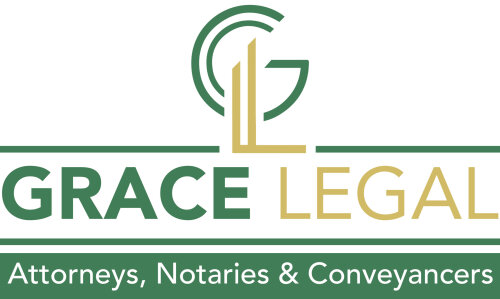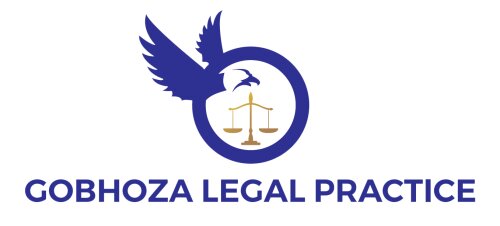Best Project Finance Lawyers in Gaborone
Share your needs with us, get contacted by law firms.
Free. Takes 2 min.
List of the best lawyers in Gaborone, Botswana
About Project Finance Law in Gaborone, Botswana
Project finance is a specific method of funding large-scale and capital-intensive projects, such as infrastructure, mining operations, power plants, and real estate developments. In Gaborone, Botswana, project finance is commonly used for ventures that promise substantial economic return but require high upfront investment. The process involves raising capital by establishing a legally independent project company, with lenders having recourse only to the project's assets and revenue. This approach limits financial risk to the project's sponsors while leveraging the strength of the project's anticipated future cash flows.
Why You May Need a Lawyer
Project finance transactions are often highly complex and involve coordination between multiple parties, such as investors, lenders, government agencies, construction companies, and service providers. Common situations where legal help is necessary include:
- Drafting and reviewing financing and security agreements
- Navigating regulatory requirements and obtaining relevant approvals
- Conducting due diligence on title, regulatory compliance, and environmental issues
- Structuring transactions to optimize risk allocation and tax management
- Negotiating contractual terms with joint venture partners and off-takers
- Addressing disputes or unforeseen risks during project development or operation
- Restructuring project debt or advising on project distress or insolvency
Engaging a lawyer ensures all stakeholders are aligned and regulatory compliance is achieved, which is critical for the success and longevity of the project.
Local Laws Overview
Project finance transactions in Gaborone, Botswana, are governed by a mix of local statutes and common law principles. Some key legal and regulatory aspects include:
- Company and securities law: Projects are often structured as special purpose vehicles (SPVs) under the Companies Act. Shareholding, director duties, and corporate governance requirements are central.
- Financial regulation: The Non-Bank Financial Institutions Regulatory Authority and the Bank of Botswana oversee financial sector activities, including aspects of project lending and foreign direct investment.
- Land and property law: Land tenure is a vital issue. Transfers, leases, and security interests must comply with the Deeds Registry Act and related regulations.
- Secured transactions: Creation and perfection of security interests over project assets, including movable and immovable property, are essential for lenders and follow specific legal protocols.
- Contract law: Botswana’s legal framework is based on the Roman-Dutch common law system, complemented by statutes detailing commercial contracts, procurement, and construction law.
- Tax and investment incentives: Tax structuring is shaped by the Income Tax Act and available incentives for certain sectors (especially energy and mining).
- Environmental law: Environmental Impact Assessments and compliance with the Environmental Assessment Act are mandatory for qualifying projects.
- Dispute resolution: Courts in Botswana, alongside arbitration and mediation options, are available for resolving project-related disputes.
Frequently Asked Questions
What is project finance and how is it used in Botswana?
Project finance is a method of funding projects where repayment relies mainly on the project's cash flow rather than the sponsors' balance sheets. It is commonly used in mining, energy, and infrastructure initiatives in Botswana.
What are the key elements of a project finance transaction?
A typical transaction involves a special purpose vehicle, non-recourse or limited-recourse lending, various contractual agreements (like concession, EPC, and offtake contracts), and robust risk allocation mechanisms.
Can foreign investors participate in project finance in Gaborone?
Yes, Botswana encourages foreign direct investment, and international investors can participate in project finance deals, subject to compliance with local laws and regulations.
What are the main risks addressed in project finance agreements?
Risks commonly addressed include construction, operational, market, legal, regulatory, and environmental risks. Allocation of these risks among the project parties is a core focus of documentation.
Is government approval needed for project finance transactions?
Yes, certain projects, particularly in energy, natural resources, and infrastructure, require governmental licenses, permits, and sometimes direct state involvement or guarantees.
How are land rights handled for a project in Botswana?
Land rights are addressed through leases or transfers, complying with the Deeds Registry Act, the Tribal Land Act, or relevant statutes, depending on the land category (state, freehold, or tribal).
What kind of security can lenders take in Botswana?
Lenders can take security interests over land, buildings, movable assets, shares, contracts, and bank accounts, subject to perfection and registration requirements.
What taxes apply to project finance arrangements?
Taxation is governed by the Income Tax Act. Incentives or reduced rates may be available to qualifying projects, especially those that advance national development goals.
Are there environmental requirements for new projects?
Yes, almost all significant projects require an Environmental Impact Assessment and must comply with national environmental standards throughout their lifecycle.
How are disputes resolved in project finance deals in Botswana?
Parties may opt for litigation in Botswana courts or alternative dispute resolution mechanisms, such as arbitration and mediation, which are legally recognized and enforceable in Botswana.
Additional Resources
Individuals and corporations interested in project finance in Gaborone, Botswana, may find the following resources helpful:
- Ministry of Finance - for guidance on investment, incentives, and economic regulations
- Bank of Botswana - for regulations on lending, banking, and foreign exchange
- Botswana Investment and Trade Centre (BITC) - for investment support and regulatory guidance
- Botswana Unified Revenue Service (BURS) - for tax information and compliance support
- Environmental Affairs Department - for environmental permits and assessments
- Law Society of Botswana - for referrals to qualified legal professionals
Next Steps
If you require legal assistance with a project finance matter in Gaborone, Botswana, consider the following steps to safeguard your interests:
- Determine the specific legal or transactional question you need help with
- Prepare relevant project documents, such as contracts, financial models, agreements, or permits
- Contact a qualified lawyer experienced in project finance law, preferably with local knowledge and credentials
- Schedule a consultation to discuss your project, legal risks, and regulatory requirements in detail
- Work collaboratively with your lawyer to develop a compliance and risk management strategy tailored to your project
- Monitor and update legal documentation throughout the project lifecycle to remain compliant with Botswana's evolving legal and regulatory environment
Seeking professional legal counsel early in your project can make the process smoother, prevent costly missteps, and improve your project's chances of success.
Lawzana helps you find the best lawyers and law firms in Gaborone through a curated and pre-screened list of qualified legal professionals. Our platform offers rankings and detailed profiles of attorneys and law firms, allowing you to compare based on practice areas, including Project Finance, experience, and client feedback.
Each profile includes a description of the firm's areas of practice, client reviews, team members and partners, year of establishment, spoken languages, office locations, contact information, social media presence, and any published articles or resources. Most firms on our platform speak English and are experienced in both local and international legal matters.
Get a quote from top-rated law firms in Gaborone, Botswana — quickly, securely, and without unnecessary hassle.
Disclaimer:
The information provided on this page is for general informational purposes only and does not constitute legal advice. While we strive to ensure the accuracy and relevance of the content, legal information may change over time, and interpretations of the law can vary. You should always consult with a qualified legal professional for advice specific to your situation.
We disclaim all liability for actions taken or not taken based on the content of this page. If you believe any information is incorrect or outdated, please contact us, and we will review and update it where appropriate.















